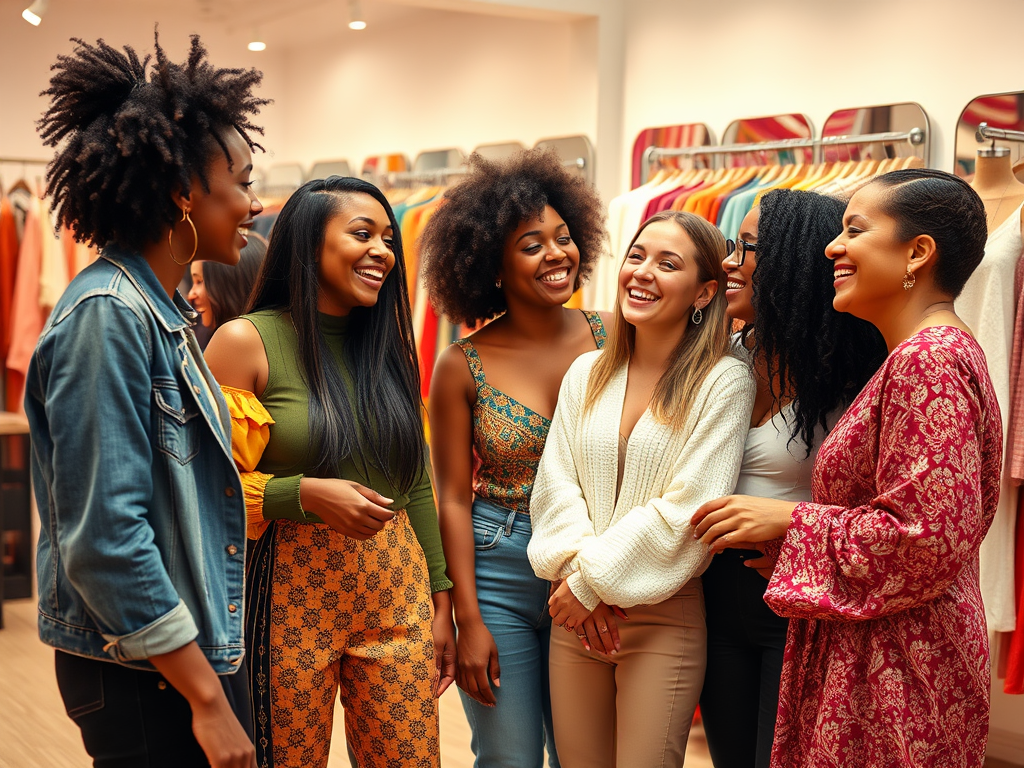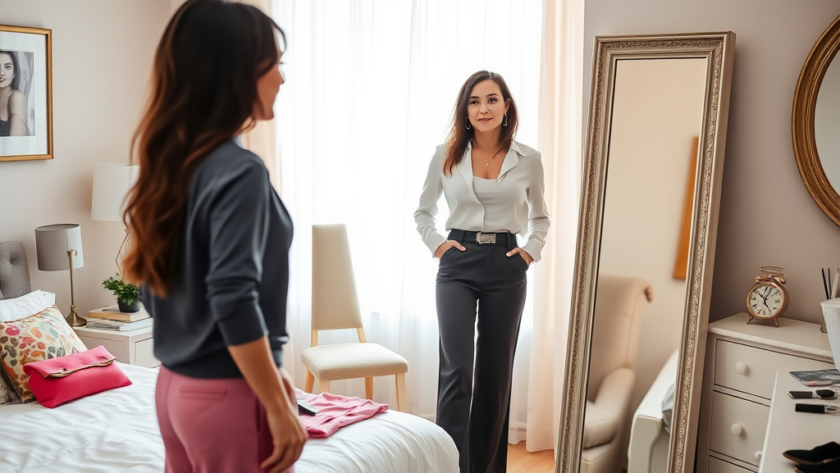When was the last time you felt truly confident in what you were wearing? The act of dressing well is often seen as superficial or merely aesthetic, but it carries profound psychological implications, especially for women. Each morning presents a unique opportunity to curate an outfit that not only reflects personal style but also enhances mental well-being. The choice of clothing can significantly influence self-image, mood, and even social interactions. In this article, we delve into the connection between fashion and psychological benefits, illustrating why investing time in your appearance can prove incredibly empowering. From improved self-esteem to enhanced social dynamics, dressing well can be a vital component of a woman’s daily routine.
The Connection Between Clothing and Self-Perception

Clothing serves as a mirror that reflects our self-perception. When you put on an outfit that you love, it can immediately alter your outlook and attitude for the day. This connection between clothing and self-image is particularly prominent among women, who often face societal pressures regarding appearance. The outfits we choose to wear can either affirm our identity or challenge it, depending on how they resonate with our personal beliefs and values. It’s fascinating to observe how a single ensemble can switch a mindset from doubt to empowerment almost instantly. Therefore, the right choice in clothing transcends mere fabric and stitches; it becomes an embodiment of one’s identity.
Enhancing Confidence Through Fashion

When the right outfit is donned, it often becomes a source of confidence that transforms how a woman engages with the world. The fabric, the cut, and even the accessories can significantly elevate one’s self-esteem. Research suggests that wearing clothes that we feel good in can improve performance in various situations, whether at work or in social interactions. For many women, feeling good in what they wear translates to feeling empowered, which often results in taking on challenges more boldly. Over time, this can reshape how one perceives themselves and solidifies a more affirmative self-view.
Selecting pieces that flatter one’s body type not only creates a visually appealing look but also reinforces positive feelings about oneself. Understanding your body shape and choosing clothing that embraces it can make a remarkable difference. Below are some guidelines that can help you find the right fit:
- Identify your body shape: Pear, hourglass, or athletic?
- Choose tailored pieces that highlight your natural features.
- Experiment with styles to discover what resonates most with you.
The Influence of Colors and Patterns on Mood
The colors we wear often have a psychological impact that can influence our emotions and behaviors. Bright colors such as yellow and orange may evoke feelings of joy and warmth, while darker tones may create a sense of mystery or seriousness. By understanding how colors affect psychological well-being, women can strategically choose outfits that align with their intended mood for the day. Patterns also play a significant role; floral motifs, for instance, are often associated with freshness and positivity. The bonds between colors, patterns, and mood are profound and should not be underestimated.
Color psychology explores the emotions and thoughts linked to different colors and patterns. Here’s a brief overview of how various colors can affect mood:
| Color | Psychological Effect |
|---|---|
| Red | Stimulating and energizing |
| Blue | Calming and peaceful |
| Green | Refreshing and reassuring |
| Yellow | Cheerful and uplifting |
| Purple | Creative and spiritual |
The Social Aspects of Dressing Well
Fashion extends beyond the self; it plays a pivotal role in societal interactions as well. The way we dress can significantly affect how others perceive us, shaping both personal and professional relationships. It is often said that first impressions are lasting ones, and what we wear can be a crucial element in those first encounters. Whether in a job interview or a casual meet-up with friends, the right outfit can ignite confidence and enhance social connection. As a woman, understanding the social implications of dress can be empowering.
The impact of dressing well is particularly noticeable in professional settings. A refined appearance can improve credibility and promote respect from colleagues. Here are key benefits of dressing well in social interactions:
- Increased confidence in social settings.
- Enhanced credibility and professionalism.
- Improved networking opportunities.
The Therapeutic Effects of Dressing Up
Dressing well can also function as a therapeutic ritual that gives structure to the day. Establishing a morning routine centered around selecting an outfit can create a positive starting point for the day ahead. This practice may serve as a simple form of self-care and encourage mindfulness. The act of intentionally choosing clothes can transform it into a time of self-reflection, providing a moment to connect with oneself. Elevating personal style doesn’t merely influence how others see you; it can also provide a much-needed boost in your own self-esteem.
By treating the process of dressing as a deliberate ritual, women can cultivate mental health benefits as well. Here’s why this is important:
- It fosters a sense of control over one’s day.
- It allows for personal expression and creativity.
- It can serve as an emotional booster and change of pace in a busy day.
Conclusion
In summary, the psychological benefits of dressing well go far beyond societal norms or external validation. It connects to deeply ingrained aspects of self-perception, confidence, social interactions, and even emotional well-being. By embracing the art of dressing with intention, women can harness the power of fashion to enhance their lives in meaningful ways. Ultimately, investment in personal style is not a mere luxury, but a gateway to well-being, empowerment, and self-discovery.
Frequently Asked Questions
- What are the key psychological benefits of dressing well?
Dressing well can enhance self-esteem, improve mood, and lead to a more positive self-image. - How does clothing affect first impressions?
Clothing plays a significant role in how we are perceived by others, influencing their initial judgment of our professionalism and personality. - Can wearing certain colors really change my mood?
Yes, colors have psychological effects, with certain hues being linked to increased energy or calmness. - Is dressing well a form of self-care?
Absolutely! Taking the time to dress well can serve as a mindful practice that promotes mental wellness. - How can I find my personal style that makes me feel good?
Start by experimenting with different styles, fits, and colors to discover what resonates with your personality and makes you feel confident.




